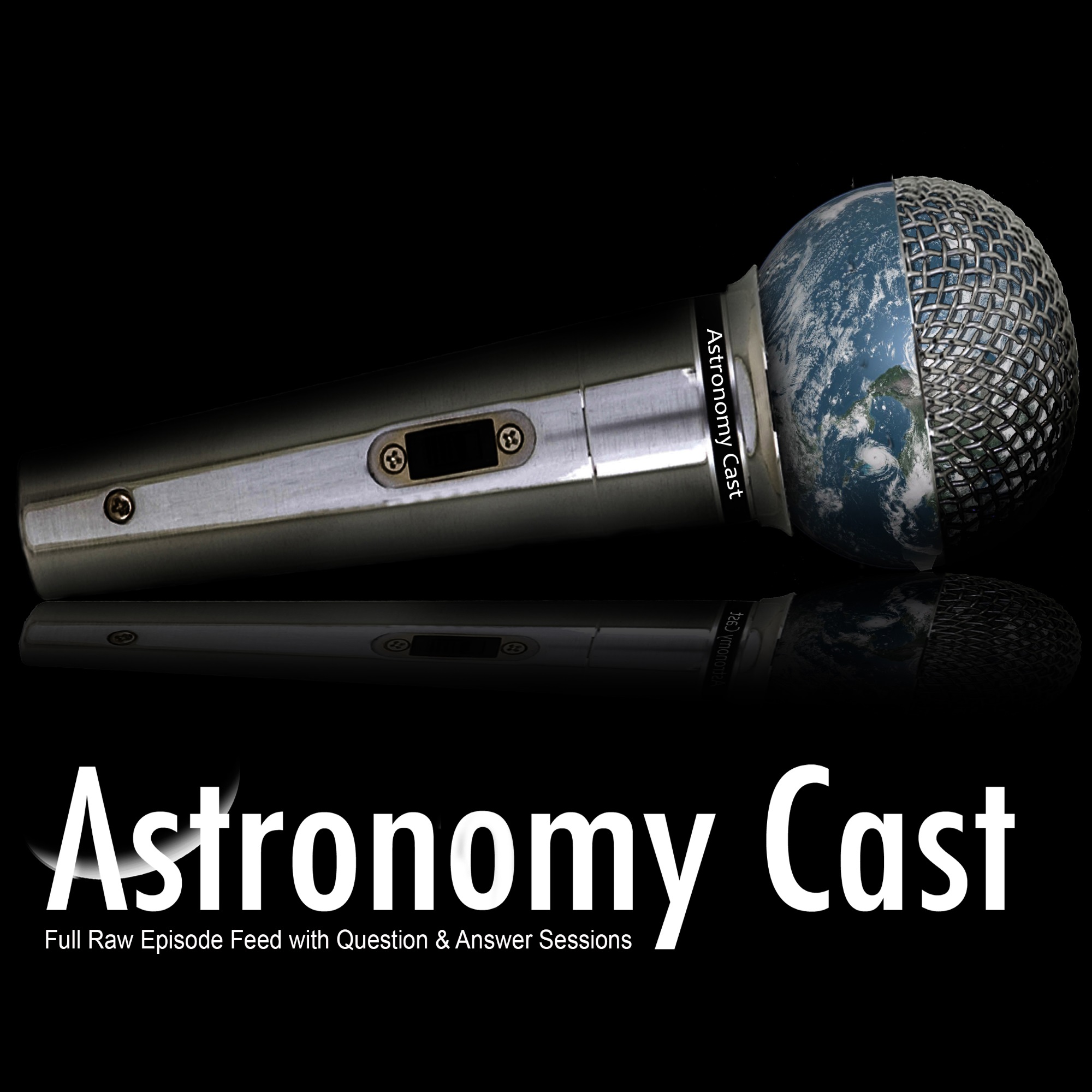
365 Days of Astronomy - Weekly Edition
The weekly podcast from the International Year of Astronomy 2009. This podcast comes out weekly and includes each daily episode of the 365 Days of Astronomy Podcast.
- Update frequency
- every 7 days
- Average duration
- 55 minutes
- Episodes
- 329
- Years Active
- 2017 - 2025

Ep. 504: Radar, Lidar, and Sonar
To really study something, you want to reach out and touch it. But what can you do if you're separated by a huge distance? You reach out with electromagnetic or sound waves and watch how they bounce …

Ep. 503: Gravity Mapping
The Earth looks like a perfect sphere, but down here on the surface we see that there are mountains, rivers, oceans, glaciers, all kinds of features with different densities and shapes. Scientists ca…

Ep. 502: No Touching: Determining Composition of Worlds Remotely
How do you know what something is made of if you can't reach out and touch it? How do we know what planets lights years away have in their atmosphere? What about the rocks all around Curiosity? Or th…

Ep. 501: Water Worlds Revisited
We're not learning that the vast majority of potentially habitable worlds out there are actually icy moons like Europa and Enceladus. Good news, there are hundreds, if not thousands of times more of …

Ep. 500: Live Celebration!
Welcome to episode 500 of Astronomy Cast. To celebrate this momentous occasion, we're going to look back 500 years into the past to see what we learned about the Universe. And then we're going to loo…

Ep. 499: What is the proposed Hubble-Lemaitre Law?
We started out Astronomy Cast with the controversal decision to de-planet Pluto. And here we are, more than a decade later, at the brink of recording our 500th episode when another big decision is co…

Ep. 498: Dwarf Galaxy Update
The Milky Way has gobbled up dozens of dwarf galaxies and added them to its structure. Today we're going to look at the ongoing hunt for the wreckage of past mergers. And what we've discovered about …

Ep. 497: Update on Globular Clusters
Is it globular clusters or is it globeular clusters? It doesn't matter, they're awesome and we're here to update you on them.

Ep. 496: Update on Stellar Populations (I, II, & III)
Another update show, this time on the various generations of stars, let's get into it.

Ep. 495: Update on Asteroids & Prospects of Asteroid Mining
Our knowledge of space is starting to match up with our ability to get out there an explore it. There are several companies working on missions and techniques to harvest minerals from asteroids. What…

Ep. 494: Icy Moons Update 2018
Thanks to Cassini and other spacecraft, we've learned a tremendous amount about the icy worlds in the Solar System, from Jupiter's Europa to Saturn's Enceladus, to Pluto's Charon. Geysers, food for b…

Ep. 493: Mars Update 2018
If there's one place we've learned more about in the last 10 years, it's Mars. Thanks to all those rovers, orbiters, landers which are flying overhead, crawling around the surface, and digging into t…

Ep. 492: Comets, Asteroids and KBO’s
Another topic with plenty of updates. Since we started Astronomy Cast we’ve visited many smaller objects in the Solar System up close, from Ceres and Vesta to Pluto, not to mention a comet. What have…

Ep 491: Exoplanet Update 2018
Finally, a big update. Have there been news in the realm of exoplanets? More news that we can possibly cover. But we'll try our best.

Ep 490: What's New with Supernovae
Time for another update, this time we're going to look at what's new with supernovae. And once again, we've got good news, lots of new stuff to report.

Ep 489: Black Hole Update
Another update episode, this time we look at what’s new and changed in the research of black holes. And it’s here that we find a lot of substantial new discoveries in the field, so much has been disc…

Ep 488: Dark Energy: 2018 Edition
The updates continue. Last week we talked about dark matter, and this week we continue with its partner dark energy. Of course, they're not really partners, unless you consider mysteriousness to be a…

Ep 487: Dark Matter: 2018 Edition
Last week, we gave you an update in particle physics. This week it's time to see what's new in the world of dark matter. Spoiler alert, we still have no idea what it is, but maybe a few more ideas fo…

Ep 486: Particle Physics Update
It's time for a news update. This time from the field of particle physics. It turns out there have been all kinds of new and interesting particles discovered by the Large Hadron Collider and others. …

Ep 485: Docking, Refueling, and Transferring
It's one thing to get to space. But once you've made it there, what do you want to do? You'll probably want to dock with another space ship, deliver cargo, refuel. Today we'll talk about how all that…